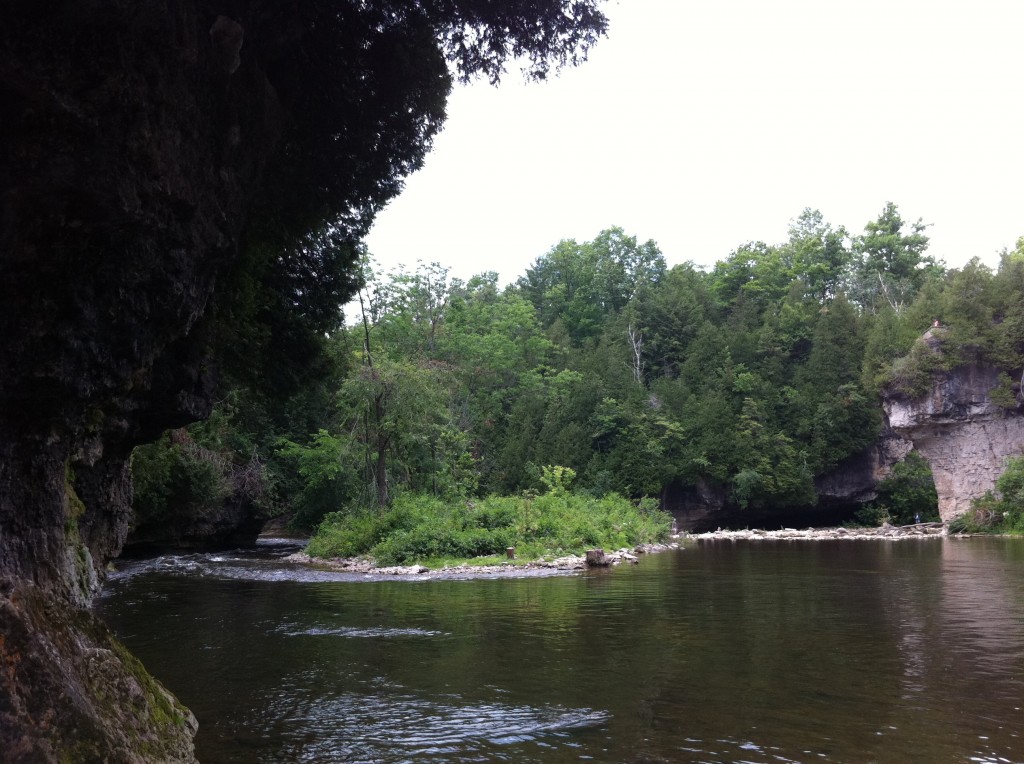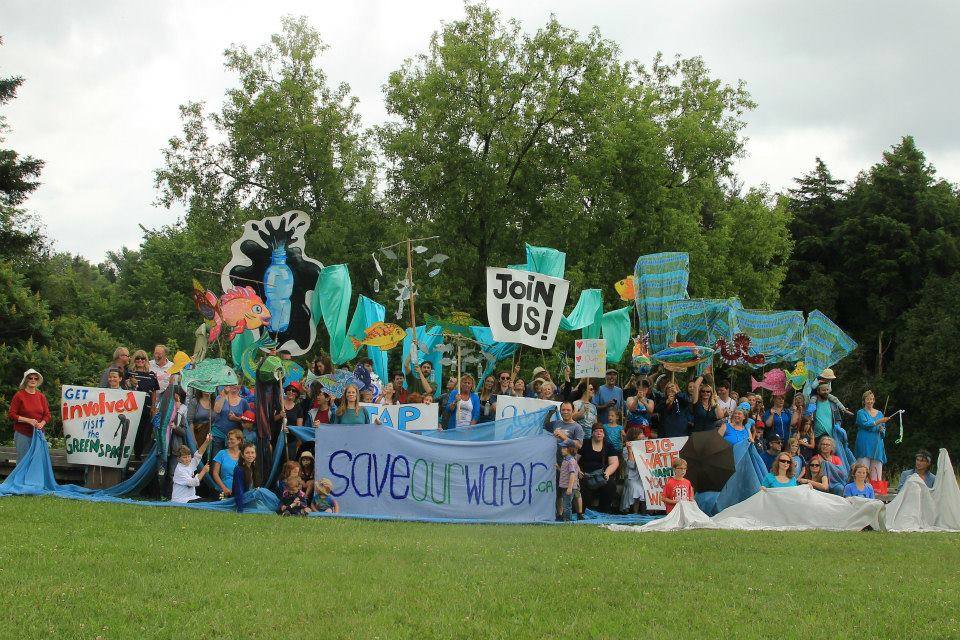I grew up in the village of Elora, Ontario. As a child I knew its trees, flowers, and berry patches, its creatures great and small, and the sharp edges of the river’s stone walls, and I sometimes felt that they knew me. The village was my field of fairy-tale adventures, as was the conservation park to the west, and the abandoned railway line that began across the road from my house and took me to the next town over the fields. As I grew older, that landscape provided the inspiration for my first adult thoughts. One particular spot, a raised ledge that my friends at the time called “Elf-top Plateau”, was the place where I wrote my first songs and stories, and the first place on earth where I perceived something resembling a spiritual epiphany. And in my full adulthood, thoughts of “my land” inspired my doctoral thesis on environmental philosophy. Although I haven’t lived there since 2006, I still think of it as my home town.
I set my fantasy fiction series, “The Hidden Houses”, in Elora and its environs, although I renamed it “Fellwater”. In those novels, a faction of villains work to control, or else destroy, a magical water well. In early 2015, Nestlé corporation submitted a proposal to extract and bottle water from the aquifer that feeds the village, and other communities downstream. (A curious case of life imitating art, perhaps; although I’m sure Nestlé’s intentions are merely capitalist, and not the same as those of my antagonists.)
This proposal was protested by local residents, who made three main demands:
1. Nestle should monitor local wells for two weeks prior to its main pumping test, in order to provide better groundwater baseline data,
2. Municipal and provincial authorities should impose a three-year moratorium on consumptive water-taking in the Grand River watershed, and,
3. Municipalities in the watershed should be granted the time they need to complete their Water Supply Master Plans and their Tier-3 Risk Assessments.
I think these demands are very reasonable, and I’d like to help give them some publicity. To that end, I promise to donate all the royalties from the sale of my novels, for the month of November, to Elora’s Save Our Water campaign.
Elora’s rich, diverse, delightful, and bountiful watershed, the very flowing heart of the real-world fairyland that I still love, is clearly threatened by industrial water extraction. The company plans to take 1.6 million litres of water every day. That’s almost as much water from the aquifer as the village itself takes; effectively doubling the demand on the ecosystem. Yet where Elora residents pay $2140 per million litres, Nestlé will pay only $3.71 for the same volume.
This injustice stirs in me a hazy mixture of rage and despair. But what can I do, sitting here at my desk in west Quebec? This much, at least: I can help promote the cause. I can ask you to visit the Save Our Water website to learn more on your own. If you find their demands reasonable, please support the cause by talking about it with your friends. You can donate money directly to the group through its web site, of course. But if you would also like to experience a little bit of the magic that I felt, as a child and a young adult, living in one of Canada’s most inspirational ecological wonderlands, then you can read my novels. And my profit from the sales of these books, for the month of November, will all be turned over to the campaign. Every penny.
Naturally I hope you like my books: click here to find out more about them. I hope you will share this blog post to all your friends, as well as the SaveOurWater.ca web site.
Let me give the last word to one of my novel’s heroines, chieftain Miranda Brigand:
“The world turned its back on us a long time ago. We know that. In fact we accept that. Even we ourselves don’t believe that dancing around the Maypole will make bad weather go away. But when the world left us behind, it also left so much more as well. The idea of the heroic life! Adventure, courage and strength. Generosity, friendship, and solidarity. Where are those virtues now? And what has the world embraced instead? Pop celebrities instead of heroes. Politicians instead of leaders. Teachers that promote conformity instead of knowledge. Law courts where justice goes to whoever has the best paid lawyer. And the people who work for change are ridiculed, ignored, sometimes attacked. Oh, we can see the nightfall of the earth, just as much as anybody can. But we are looking for the sunrise in the right place. That’s what Fellwater Grove is about! We don’t want to rule the world. We just want to live better lives. We’re all just people here, that’s all, just people. But people who care about friendship, and music, and all the things that really matter. We built this place to protect these things, and to make sure they don’t die. The world might want them back some day.”




Pingback: One Pagan is Putting His Money Where His Drinking Water Comes From | Humanistic Paganism
Pingback: My donation to Save Our Water: How did it go? | The North West Passage